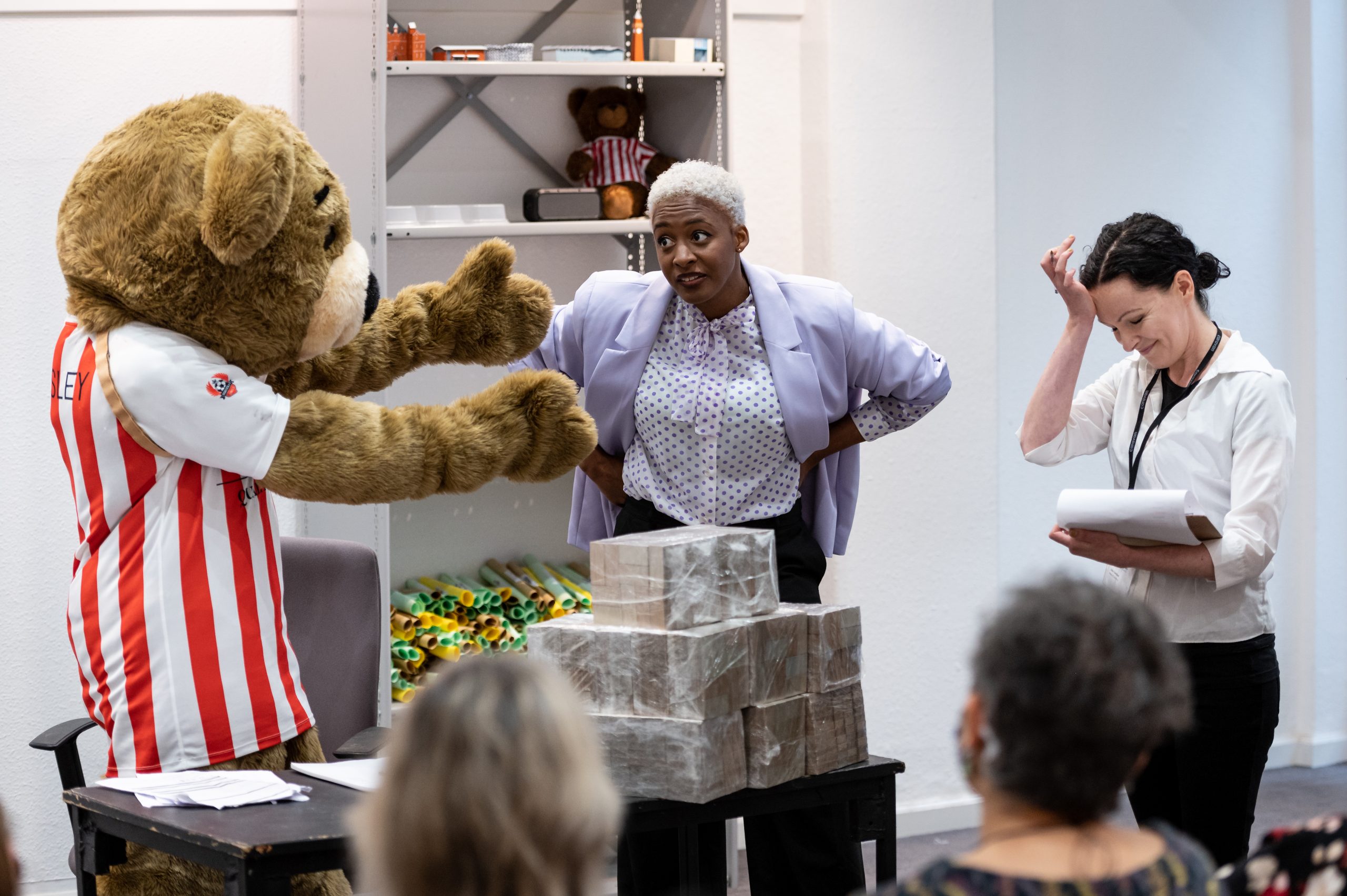


How come Birmingham City Council is bankrupt?
Different people will tell you different things depending on their perspective. We made a theatre show called All Our Money explaining how the budget works. Here are ten things we’ve learnt.
- Although the city council budget looks huge (nearly £4billion) it has to pay for a lot of things.
- Most citizens pay Council Tax and it’s easy to believe Council Tax pays for all council services but in truth it is a small portion of our council’s budget. Central Government caps how much Council Tax can be charged and has blocked re-banding, which would allow more council tax to be raised in areas of town that have become more affluent over the years.
- The council receives lots of money from government departments but has very little choice what this money is spent on.
- Although lots of schools have oped out from council control and get their money directly from the Department for Education the city council is still responsible for ensuring every child in the city gets a good education.
- Education is one of the council’s statutory responsibilities, something they legally have to deliver, others are Housing, Adult Social Care, Children’s Services, Waste Disposal, Library Services, Planning and Road Maintenance. Everything else is called ‘discretionary spending’ and thus can be cut.
- The council can charge for services – such as garden waste bins – but can’t make a profit. So they can’t charge extra for one thing in order to pay for another.
- Council House rents can only be spent on maintaining and improving Council Houses.
- Business rate income has been squeezed by Covid, the cost of living crisis and the move to online commerce and home working. Charity shops get an 80% discount on rates and can apply to be excused the remaining 20%.
- Central Government increasingly distributes money though competitive bidding. They announce a pot of money to address a certain issue and councils must bid against each other for a slice of that money. This results in short term rather than strategic thinking, it prevents neighbouring authorities working together, it is expensive for council’s to put the bids together and favours well off councils that can invest more in the bid writing process.
- Lots of councils have large debts (and some investments). They are not allowed to sell off their assets in order to balance their budgets. Birmingham did sell off the National Exhibition Centre but that was to settle a debt they owed female employees who they had been playing less than male employees for doing equivalent work. This sale required an act of parliament to make it legal.
In summary:
We learnt that there are significant tensions between local and central government. Over years growing demands for statutory services, not matched by an equivalent increases in income, have led lots of council’s into financial trouble.
It suits a Conservative Central Government to put the blame for this on opposition controlled Local Governments, but Central Government controls a lot of the variables. Budgets across the country in lots of councils of all kinds are finely balanced and so unable to absorb significant financial shocks.
Birmingham City Council has recently received two such shocks. The equal pay claim turns out not to have been settled after all and their bespoke Oracle IT system needs lots more investment before it works properly. These appear to be two examples of poor management.
So who is to blame?
We experience council inefficiencies. The council is not innocent of all blame, but neither is Central Government. There is a joint culpability. It’s a mess and the people who will suffer are the citizens.
Who are the citizens? Well us, but remember us includes councillors and council officers. Councillors are citizens who have stepped up to help make the city work, we vote for them, they answer to us. We live here together, ultimately it’s all our money, we are all responsible, need to care for our city and each other. But we need to be given a fair chance and not set up to fail.
Central and Local Governments need to collaborate on a solution, not just for Birmingham’s problems but for all those authorities around the country who are on a knife’s edge.






